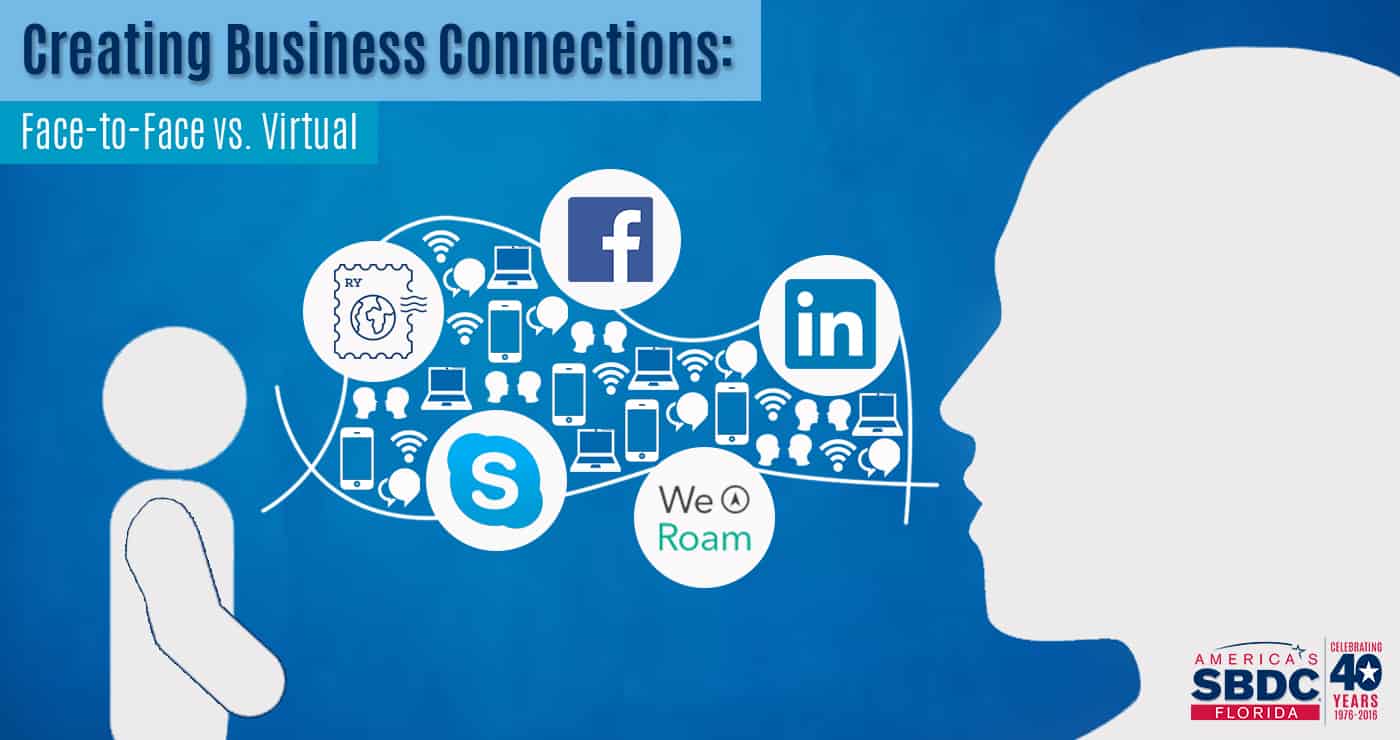Creating Business Connections: Face-to-Face vs. Virtual
In today’s world, it is more common to connect with others online than in person. Networking is done via LinkedIn and Facebook as is marketing for potential customers. Webinars provide a medium for educational and informational seminars without ever having to leave one’s office. With Skype and Facetime, business can be conducted from anywhere, virtually. According to this article from The Street, employers must be flexible and offer work from home alternatives in order to attract top talent.
Millennials are taking this to the next level by working remotely while traveling the world. These are young entrepreneurs who want the flexibility of running their own companies from any city in the world. As exotic as this sounds, it can also be lonely. However, digital nomad programs, like Remote Year and We Roam, bring together like-minded individuals to work remotely and travel together creating a balance between face-to-face and virtual worlds.
This type of work environment can work well for those looking to expand their business internationally as well, but it’s important to remember that you must create relationships.
When conducting business internationally, this balance is critical. People will only do business with you if they know you, like you, and most of all, trust you. So, to gain that trust, you need to meet your international prospects in person and get to know each other first, before any business is conducted. This means, you will need to travel to countries in your target market several times, learning the culture and how business is done in that culture before you can take advantage of the virtual world we now live in.
Companies definitely save time and money conducting virtual meetings since the need for travel is eliminated but there are other important benefits, such as collaboration. With virtual meetings, you can bring the entire team together, more often, for brainstorming, presenting new product lines, and solving complex problems, just to name a few. This is a great benefit because employees, partners, customers, vendors and the employers are rarely in the same place at the same time.
Internationally, this will be extremely important, as you need to maintain contact and continuously build that relationship. In Mexico, for example, it could take up to a year of rapport building before you make that first sale. For small and medium-sized enterprises, it’s just not realistic to maintain the travel expenses needed to obtain that first contract.
So, face-to-face or virtual? I say both; first, second and maybe even third meetings, definitely face-to-face. Then, go virtual as often as possible.






Selma Canas
Canas, Consultants, International Consultants 2, TampaNASBITE Certified Global Business Professional (CGBP), Florida SBDC at USF, Tamp
Specialties: International Trade, Export Marketing Plans, Market Research
Selma Canas is responsible for guiding small businesses through the complexities of developing export marketing and international expansion plans and teaching seminars on basic international trade. She has developed more than 30 Export Marketing Plans during the past six years for local businesses, and participated in trade missions to Brazil, Chile, Canada, and the Dominican Republic. Canas has more than 15 years of experience in sales, marketing and customer service in a variety of industries, including freight forwarding, real estate and advertising. As a co-owner of Restaurant Guide USA, she increased sales and distribution points and tripled the size of the distributed product.
As a real estate broker-owner, Canas carved a niche in the Latin American community and had a career sales volume of more than $37 million. Canas earned her bachelor degree in economics from the University of South Florida. She is a NASBITE Certified Global Business Professional and holds an Export and Trade Counseling Certification from the U.S. Small Business Association. Selma earned Florida SBDC at USF Employee of the Year honors in 2016. She is a member of Toastmasters international and is fluent in Spanish and Portuguese.